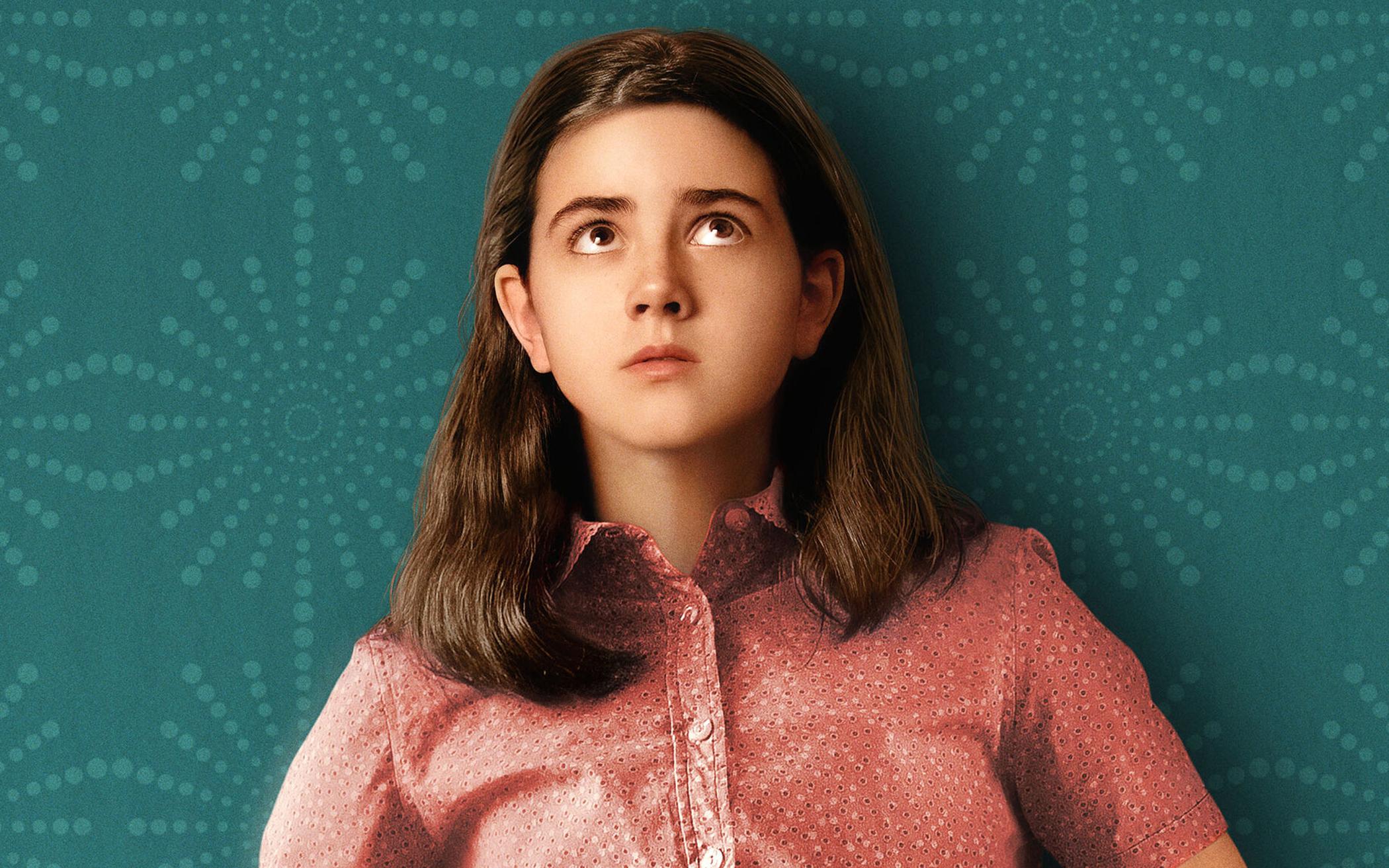What surprised me most about the new movie version of Are You There, God? It’s Me, Margaret was its deep and complex themes of spirituality.
I knew I would be delighted to hang out with my old friend, Margaret, again, after all these years, because Margaret is just the best. But I had forgotten about the rich depths of the book.
As we follow Margaret’s coming of age, amid a move from New York City to the suburbs of New Jersey (“Dear God, please don’t make New Jersey too horrible”), trying to fit in with a new group of girls, and facing the bewildering changes in her body and soul, we find her oddly relatable, no matter our ages or gender.
Abby Ryder Fortson plays Margaret with wide-eyed winsomeness, pitch-perfect comedic timing, and a sensitivity to the weighty topics at hand. Besides lamenting her flat chest and lack of a monthly period, Margaret navigates the confusion of being raised by loving but non-religious parents who create a spiritual vacuum in their attempts to be neither Jewish (Herb, her dad, played gently by Benny Safdie) or Christian (Barbara, her mom, played by the luminous Rachel McAdams, was raised in a Protestant home). The lack of religion in the home stokes Margaret’s curiosity about faith and God, to whom she talks about her most pressing concerns.
Barbara’s parents, who shunned their daughter years ago over her marrying a Jew, make an appearance later in the film, but their cold disapproval still looms large in the family’s hearts. Meanwhile, Margaret’s Jewish grandmother, played by Kathy Bates, always a scene stealer, jumps at the chance to take her granddaughter/bestie to Temple when Margaret asks to go. Besides visiting a synagogue, Margaret visits a friend’s boisterous Black church and a Catholic confessional, always quietly respectful in her quest for answers. Yet despite these pilgrimages, Margaret only “feels” God when she talks to him in the privacy of her bedroom.
Sadly, the Christian grandparents are the villains in this piece. Instead of loving their daughter and her cherished family well, they rigidly stick to their self-righteous bunkers, and all they have to show for it is loneliness. They have clearly prioritized being right in their eyes to being in relationship with Barbara, Herb, and Margaret.
Christians also do not come off very well in Judy Blume Forever, a fizzy yet vital new documentary on Amazon Prime about the life and writings of the iconic, now-85-year-old author.
This isn’t because Blume is against Christians, but some Christians have certainly treated her poorly. Yes, Blume pushed the envelope in some of her books, tackling topics such as teen sex and even masturbation, which she touches on briefly in Deenie, but she didn’t deserve the outrage she got from critics who banned her many books, even Margaret. In one disturbing scene, a hostile Pat Buchanan rages against her putting sex in books “for 10-year-olds,” when Forever and Deenie were clearly written for the 16+ market. Blume, caught off guard, tries to set him straight.
Like every good documentary, this one is about more than just a particular luminary. Book banning is a major theme, both in 1980 when the “moral majority” tried to blockade the sales of her books, and today. Banned authors such as Jason Reynolds (Stamped) make an appearance, and his comment that we can tell where society’s conflicts are by looking at what books are being banned struck me as spot on.
Approve or disapprove of Blume, one can’t help but be moved by her care and kindness toward countless of her readers, who wrote to her and told her things they couldn’t tell anyone else. She wrote back to so many of them, offering empathy and even researching where they could get professional help, and in some cases investing in them for decades. The most moving parts of the documentary were when Lorrie Kim and Karen Chilstrom, former pen pals with Blume since their childhoods, spoke about her transformational, loving influence on their lives.
Both the movie, which Blume has said is better than the book (debatable, Judy, but gracious!), and the documentary celebrate an author who didn’t always get it right and went too far a couple of times, but tried to be honest and forthright to generations of tweens and teens she felt deserved honesty about their changing bodies and big questions about life and death and God. Readers such as 11- and 12-year-old me consider her a dear friend and confidante. Part of me (okay, all of me) even wants to jump on the next flight to Key West, Fla., where Blume runs a bookstore, and tell her that Jesus loves her, and so do I. Well, why not? The documentary showed all kinds of grown up readers popping into her bookstore, and bursting into tears at the sight of their old pal, who remains as sprightly, twinkle-eyed and sassy as ever. She receives them all kindly, as grateful for them as they are for her.
But in the meantime, perhaps I will dig up my old copy of Margaret, and see how it compares to the movie.
In the words of Jason Reynolds, “Judy didn’t set out to make her books timeless; she made them timely, and that’s what makes them timeless.” (Movie rated PG-13, in theaters now; documentary streaming on Amazon Prime.)
About the Author
Lorilee Craker, a native of Winnipeg, Man., lives in Grand Rapids, Mich. The author of 16 books, she is the Mixed Media editor of The Banner. Her latest book is called Eat Like a Heroine: Nourish and Flourish With Bookish Stars From Anne of Green Gables to Zora Neale Hurston.

